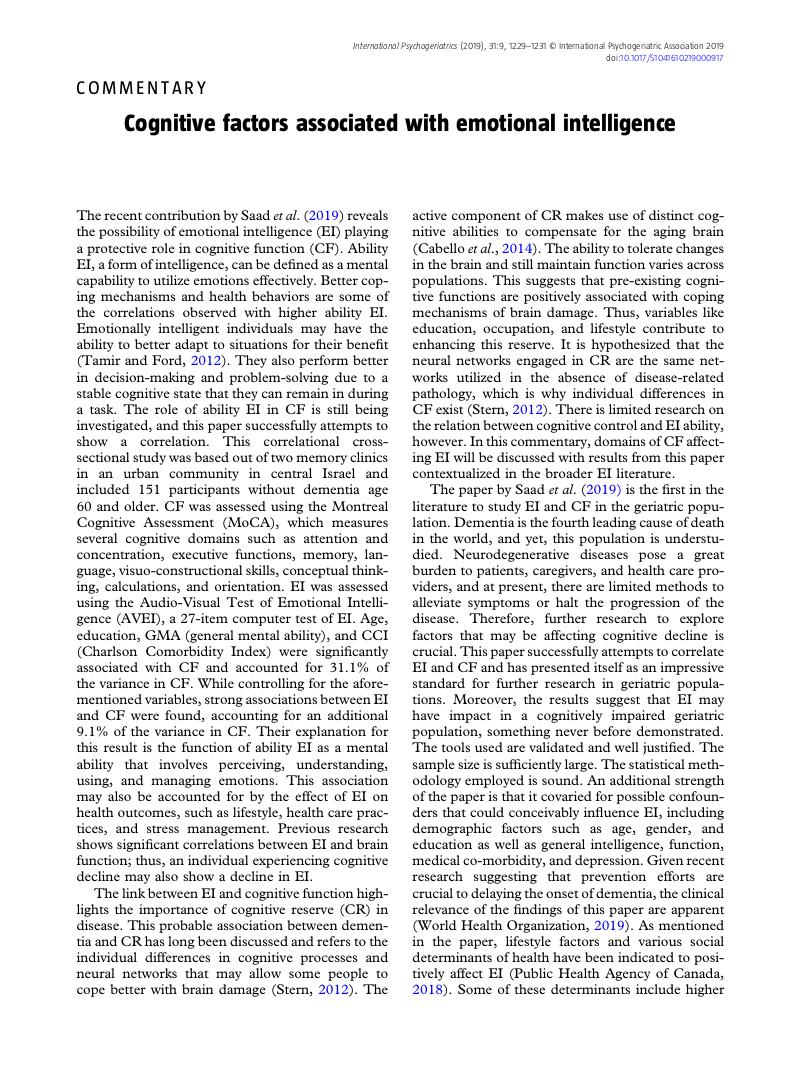Crossref Citations
This article has been cited by the following publications. This list is generated based on data provided by Crossref.
Delhom, Iraida
Satorres, Encarnación
and
Meléndez, Juan C.
2022.
Emotional intelligence intervention in older adults to improve adaptation and reduce negative mood.
International Psychogeriatrics,
Vol. 34,
Issue. 1,
p.
79.
Razumnikova, Olga M.
Tarasova, Irina V.
Kukhareva, Irina N.
Kupriyanova, Darya S.
Sosnina, Anastasia S.
and
Trubnikova, Olga A.
2024.
IMPORTANCE OF EMOTIONAL INTELLIGENCE IN THE EFFECTIVENESS OF MULTITASKING TRAINING IN CARDIAC SURGERY PATIENTS.
Complex Issues of Cardiovascular Diseases,
Vol. 13,
Issue. 3,
p.
17.
Chee, Ken Nee
2024.
Transformational Learning in Social Work and Human Services Education.
p.
141.
Razumnikova, О. М.
Tarasova, I. V.
and
Trubnikova, О. A.
2024.
Emotional intelligence and specificity of brain cortical activity in coronary heart disease.
Физиология человека,
Vol. 50,
Issue. 1,
p.
22.
Manrique-Gutiérrez, Gabriel
Rodríguez-Cayetano, Quetzali
Samudio-Cruz, María Alejandra
and
Carrillo-Mora, Paul
2024.
The role of cognitive reserve in traumatic brain injury: a systematic review of observational studies.
Brain Injury,
Vol. 38,
Issue. 1,
p.
45.
Razumnikova, O. M.
Tarasova, I. V.
and
Trubnikova, O. A.
2024.
Emotional Intelligence and Specificity of Brain Cortical Activity in Coronary Heart Disease.
Human Physiology,
Vol. 50,
Issue. 1,
p.
15.



